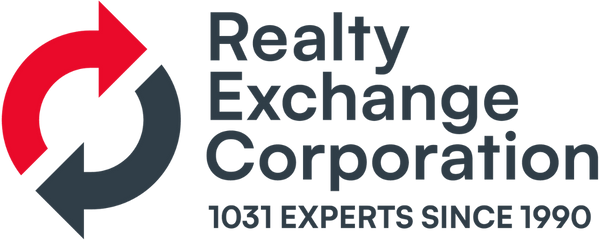By Ed Horan, Certified Exchange Specialist®
Why do you need a qualified intermediary to do a tax-deferred exchange?
In 1991 the IRS established the requirement for a qualified intermediary (QI) in their regulation on Section 1031 of the Internal Revenue Code. The regulation, Section 1.1031(k)-1, provides the rules for a tax- deferred exchange.
What is a Tax-Deferred Exchange?
The regulation defines it as:
“an exchange in which, pursuant to an agreement, the taxpayer transfers property held for productive use in a trade or business or for investment (the “relinquished property‟) and subsequently receives property to be held either for productive use in a trade or business or for investment (the “replacement property‟).”
One of the major issues in an exchange is the actual or constructive receipt of money or other property by the taxpayer before receipt of the replacement property. To clarify this issue the 1991 regulation provides “safe harbor” procedures so that the taxpayer may safely avoid constructive receipt. In the process the regulation created the mandatory use of the qualified intermediary. A QI is also called an accommodator or facilitator.
A QI is defined as:
“a person who is not the taxpayer or a disqualified person, and enters into a written agreement with the taxpayer (the “exchange agreement‟), and as required by the exchange agreement, acquires the relinquished property from the taxpayer, transfers the relinquished property, acquires the replacement property, and transfers the replacement property to the taxpayer”.
In addition to the exchange agreement, the “safe harbor” regulation establishes the requirement that the money or other property be held in qualified escrow or trust account. A qualified escrow account is an account wherein the escrow holder (normally the QI) is not the taxpayer or a disqualified person. The escrow or trust account agreement must expressly limit the taxpayer’s rights to receive, pledge, borrow or otherwise obtain the benefits of the cash before the end of the exchange. These restrictions are known as the “(g)(6)” requirements and are critical to the successful completion of the exchange.
The QI who actually transfers the exchange property and holds the escrow funds must be an independent party and not be a disqualified person. A disqualified person is one who is an agent of the taxpayer at the time of the transaction. The regulation describes an agent as a person who has acted as the taxpayer’s employee, personal attorney, accountant, investment broker, or real estate agent or broker within the past two years. Not considered an agent of the taxpayer is a person who performs exchange services, a financial institute, or a title company that provides routine financial, title insurance, escrow, or trust services.
Also disqualified are all family members and related parties. This includes brothers and sisters, half-brothers and sisters, spouse, ancestors (parents, grandparents, etc.), and lineal descendants (children, grandchildren, etc.). In-laws are not included. A related party also includes corporations, partnerships, and trusts in which the exchanger or a disqualified party have a greater than 10% interest. Another group disqualified is one which includes those persons having a business relationship with the taxpayer’s agent (example: a partner in the law firm of the taxpayer’s personal attorney).
The QI Plays an Important Role.
In addition to creating the required exchange and escrow account agreement, the QI provides or receives the other required documentation. This includes the assignment to the QI of the relinquished and replacement property contracts, providing notification of assignment to all parties, and receiving the 45-day identification notice. The QI also provides exchange settlement instructions to the settlement attorney/agent, delivers the escrow funds for settlement, provides a final accounting of escrow funds and interest earned, and provides instructions for reporting the exchange to the IRS. An important function of the QI is to track and follow up on the multiple exchange suspense dates to be certain the required documentation and action have been completed.
Certified Exchange Specialist®
Just like all real estate agents are not Realtors®, all qualified intermediaries are not members of the national Federation of Exchange Accommodators (FEA). As with the Realtor® associations, the FEA has a Code of Ethics and promotes continuing education for all FEA members. For those Qualified Intermediaries who have demonstrated their extensive exchange knowledge through experience and testing, the FEA has awarded a select number of QIs the designation of Certified Exchange Specialist®.
When selecting a QI the taxpayer should be certain the QI has experience and the required knowledge, is readily accessible, and is willing to answer your questions. To enhance taxpayer security, a QI firm may be bonded and insured.
A very small number of exchanges involve the direct exchange of property between two parties. While the IRS permits the use of a QI in a direct exchange, it is not required. However, many taxpayers still use a QI to help with the transaction and to complete the required documentation.
The bottom line is that to complete a successful tax-deferred exchange, the taxpayer must use a qualified intermediary and have all the required documentation in place prior to settlement of the relinquished property.
-Ed Horan, CES®, is Senior Exchange Consultant for Realty Exchange Corporation, Gainesville, VA
This publication is designed to provide accurate information on tax-deferred exchanges. The publisher is not engaged in rendering legal or accounting services. If legal or tax advice is required, the services of a competent professional should be sought.
